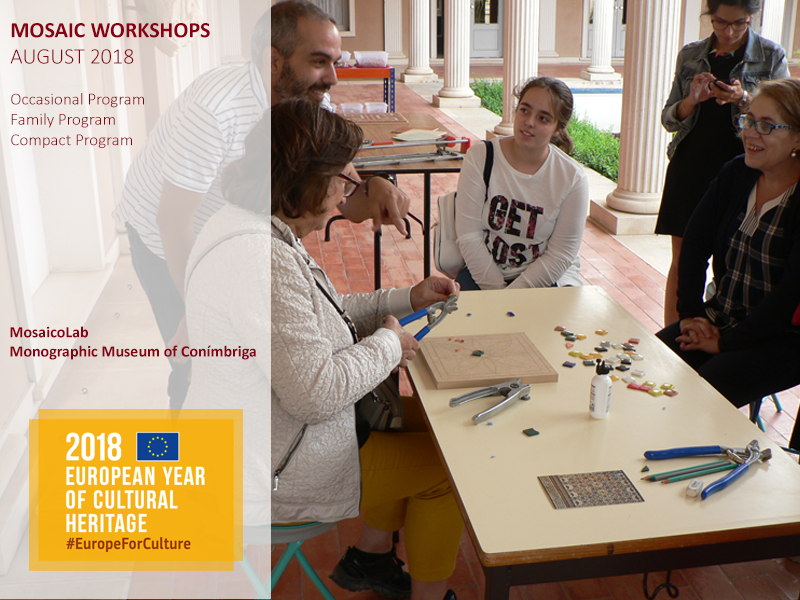Mosaic workshops at the Monographic Museum of Conímbriga with special program for August
Those interested in the mosaic and knowing about its aesthetic and cultural value, or even in trying its techniques, will have all through August an opportunity not to be missed. MosaicoLab is already carrying out a series of workshops, at the Monographic Museum of Conímbriga, which will allow to have contact with this art and to create your own mosaic to take with you.
This initiative takes place in three formats with different hypotheses, all making it possible to learn about case studies, materials and ways of making. Occasional visitors to the Museum will have at their disposal the short program, corresponding to a workshop of approximately two and a half hours, while those who wish to acquire more in-depth knowledge will be able to opt for the compact program, with a total of five hours, divided in two sessions on the same day.
Finally, there is also a program for family groups interested in discovering together the processes of creating a mosaic and developing an original group composition using material and digital media through a short workshop format.
All workshops are held Monday through Friday, in the morning (between 10:30 a.m. and 1:00 p.m.) and in the afternoon (4:00 p.m. to 6:30 p.m.), and are aimed to an audience from the age of 7 (up to 13, the presence of a relative is required). More information can be obtained on-site, on Facebook or via the email address contact@mosaicolab.pt.
The sessions will be guided by Humberto Figueiredo, PhD in Fine Arts from the Universidad Complutense de Madrid and coordinator of the project “Mosaic – Conímbriga and Sicó”, a pilot project of Creatour promoted by MosaicoLab, which seeks to implement responsible development solutions for the region of Conímbriga, Rabaçal and Santiago da Guarda, based on the existing Roman mosaic heritage.
This initiative is part of the program of the European Year of Cultural Heritage, which also includes the regular workshops which began last February and the special program which took place during the Easter period.

About the author